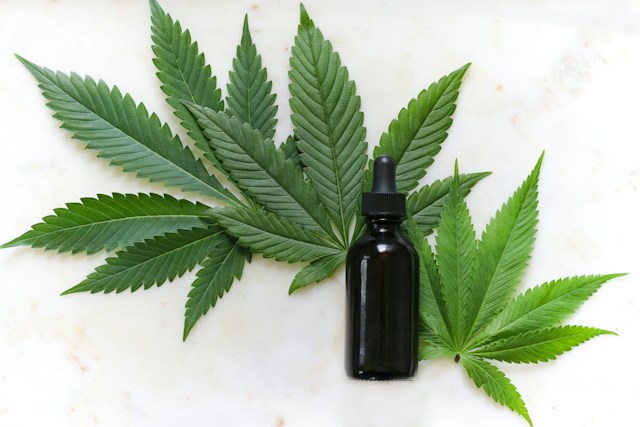Medical Cannabis Therapy
Definitions, Integration, Approach, Research, and More
Increased research in the components of medical cannabis ( Vijaya) continues to produce several groundbreaking revelations. The success in diverse research about the use of cannabis has given rise to its wide acceptance and use for medical and recreational purposes.
Use cases for medical cannabis continue to grow and some qualified professional now offer therapy based on products made from the plant. More countries are beginning to legalize cannabis in different forms, and this medicinal plant now has active dispensaries in many major cities worldwide.
There’s a lot to know about medical cannabis and its novel therapy. That’s why we’ll look at many essential aspects of medical cannabis therapy to give you a robust view of its uses, research evidence, and so much more.

What is Medical Cannabis?
Medical cannabis are products derived from plant Cannabis Sativa / Cannabis indica, to treat diverse health conditions or reduce the side effects some treatments could cause. Different products come from medical cannabis and these medications have several active ingredients. Some of the most common active ingredients in medical cannabis are called cannabinoids.
Some medical cannabis products have over 80 cannabinoids in their composition, with tetrahydrocannabinol (THC) and cannabidiol (CBD) among the most widely-used agents[.].
What is Medical Cannabis Therapy?
Medical cannabis therapy is the use of products made from marijuana for treating varying health issues. The concept of medical cannabis therapy is relatively new to western world , however it had been extensively used in Indian Ayurvedic system since thousands of years ; however, significant research success has seen this discipline gain wider acceptance across countries.
Professional medical cannabis therapy relies on products made from the marijuana plant and refined to reduce or eliminate its psychotropic properties. Major products used in medical cannabis therapy aim to offer wider management of several health-related problems with better positive results.
Medical cannabis therapy also aims to provide relief from symptoms of diverse illnesses that have lacked effective soothing solutions for some time. Efforts are in full swing to create medical cannabis products that can help treat conditions like schizophrenia and epilepsy. Some peer-reviewed journals have shown the potential of medical cannabis in treating chronic pain symptoms[.].
Medical Cannabis Therapy Towards Holistic Healing
Medical cannabis therapy aims to provide direct healing outcomes through products and enable patients manage diverse health issues. Using medical cannabis for holistic healing aims to deliver all-round wellness to people and support the swift mind-body balancing.
Another major focus of medical cannabis therapy also seeks to promote a healthy recovery for patients through safe treatment aids for better mental and physical health.

Medical Cannabis Integration in Therapy
The integration of medical cannabis in therapy must consider several valid points, as discussed in Roberts (2018):
Suitability to patients
Medical cannabis therapy may not be suitable for all patients. Currently, research is limited on the effects of cannabis products on aged people. Persons qualified to administer medical cannabis must discuss the risks and benefits with patients. The most common elements to discuss should be the:
- Concentration of potent agents like THC and CBD,
- Dosing,
- Administration routevia ingestion or intravenously),
It is also very important to review the medical history, lab value, and potential heart rate and blood pressure responses to using medical cannabis.
Current prescription
Patients keen to engage in medical cannabis must fully disclose if they are on any prescription drugs. There could be severe issues from engaging medical cannabis therapy while on other medication.
Role of Cannabinoids in Medical Cannabis Therapy
In some cases, medical cannabis products high in cannabinoids have shown significant reductions in the withdrawal symptoms of marijuana abusers[.].
Research/Clinical Trials of Cannabinoids and Medical Cannabis Therapy
An extensive clinical trial was conducted by Whiting et. al., (2015) to determine the effectiveness of cannabinoids for medical uses. The clinical trial involved 6400+ participants across 79 groups. In this study, it was discovered that medical cannabis is effective for pain reduction and average reduction in spasticity. However, the study also highlighted some side effects noticed among participants like dizziness, drowsiness, loss of balance, and vomiting.
Other research studies also align with this reports findings if you want to consider evidence on the efficacy of medical cannabis therapy.
Evidence Based Studies on Medical Cannabis Therapy
Treatment of fibromyalgia
A recent DC Department of Health (DC DOH) report suggested the use of medical cannabis as a form of treatment for fibromyalgia[.]. Fibromyalgia is a group of rheumatoid problems with common symptoms like muscles stiffness, aches, and tenderness at different parts of the body.
The evidence-based study got its conclusion from several randomized control trials (RCTs) designed to assess the efficacy of cannabis and its products on chronic pain.
In the study of Lynch and Campbell (2011) as cited in the report, it was discovered that participants experienced a massive analgesic effect after taking cannabis-based products in 83% of the RCTs.
Reduction of Parkinson disease symptoms
A report by Balash et. al., (2017) revealed that participants in an observational study noticed reduction of symptoms of Parkinson disease after treatment with medical cannabis. A significant fraction of participants in the study reported feeling much better after engaging medical cannabis therapy for at least 3 months.
Other evidence-based recommendations
A detailed assessment of evidence about the efficacy of medical cannabis in the DC DOH report also claimed that:
- Medical cannabis is a recommended solution to neuropathic pain
- Medical-grade cannabis is useful to treat cancer pain
- Cannabis for medical use is an effective product to ease nausea and vomiting
- Medical cannabis can help against poor appetite
- Cannabis for medical use can help treat anxiety, and in some cases, spasticity
These recommendations align with evidence gathered in the report from several reputable research bodies like the National Cancer Institute (NCI), International Cannabinoid Research Society (ICRS), University of California's Centerfor Medicinal Cannabis Research (CMCR), etc.
Who Should Use Medical Cannabis Therapy?
Research has shown the effectiveness of medical cannabis in treating some health issues. Much formal evidence has shown that medical cannabis could help people dealing with:
- Multiple sclerosis,
- Epilepsy,
- Cancer symptoms,
- Symptom(s) during palliative care,
- Neurological and psychological issues
- Loss of appetite, and
- Chronic pain
The evidence [.] clearly points to the use of medical cannabis in treating these conditions. A comprehensive medical cannabis therapy could be beneficial to people dealing with one or more of these health challenges. Other evidence [] also points to the efficacy of medical cannabis therapy in improved sleep patterns in some patients.
Who Should Be More Cautious Using Medical Cannabis Therapy?
Several studies have made extensive findings on the many uses of cannabis as a medical aid. Other research has also highlighted people who should cautiously engage in medical cannabis therapy in any form for now:
- People dealing with cardiovascular diseases,
- Old people on medication that could react to alternative prescription drugs,
- Anyone with a psychosis history (from mild to severe)
- Pregnant people, and
- People with a history of prescription drug abuse
People with a history of prescription drug abuse could enroll in a medical cannabis program. However, they must take this medication under the supervision of a qualified practitioner.
It is also worth noting that medical cannabis therapy is not an alternative to recreational marijuana use. People looking for recreational cannabis products should refrain from abusing medication included as part of the therapy.
Connect to Cannabryl for Expert Care and Therapy
Several studies have made extensive findings on the many uses of cannabis as a medical aid. Other research has also highlighted people who should cautiously engage in medical cannabis therapy in any form for now:
- People dealing with cardiovascular diseases,
- Old people on medication that could react to alternative prescription drugs,
- Anyone with a psychosis history (from mild to severe)
- Pregnant people, and
- People with a history of prescription drug abuse
People with a history of prescription drug abuse could enroll in a medical cannabis program. However, they must take this medication under the supervision of a qualified practitioner.
It is also worth noting that medical cannabis therapy is not an alternative to recreational marijuana use. People looking for recreational cannabis products should refrain from abusing medication included as part of the therapy.
Consultations for Effective Medical Cannabis Therapy
Cannabryl organizes patient-centric outreaches to ensure all patients get the best results from medical cannabis therapy. Connect with experienced professionals through available channels to receive effective treatment solutions for your unique needs.
References
Balash Y, Bar-Lev Schleider L, Korczyn AD, Shabtai H, Knaani J, and Rosenberg A, (2017) Medical Cannabis in Parkinson disease. Clinical Neuropharmacology; 40: 268–72.
District of Columbia Department of Health (2017)Medical CannabisEvidence on Efficacy (retrieved on October 5, 2023 from https://dchealth.dc.gov/sites/default/files/dc/sites/doh/publication/attachments/Medical%20Cannabis%20Clinical%20Efficacy%20V2.pdf)
Roberts, S. (2018) Integrating the Medical and Cannabis Systems: A Mock Case Study; EnCann Solutions Staff Commentary; CPJ/RPC • April 2020 • VOL 153, No. 2
The Health Effects of Cannabis and Cannabinoids: The Current State of Evidence and Recommendations for Researchhttps://www.ncbi.nlm.nih.gov/books/NBK425767/#:~:text=In%20adults%20with%20chronic%20pain,improves%20patient%2Dreported%20spasticity%20symptoms.
Benedict, Sabbagh, and Conermann (2022) Medical Cannabis Used as an Alternative Treatment for Chronic Pain Demonstrates Reduction in Chronic Opioid Use - A Prospective Study.Pain Physician. 2022 Jan;25(1): E113 - E119.https://pubmed.ncbi.nlm.nih.gov/35051158/
Better Health (2017) Medical Cannabis (retrieved on October 5, 2023 from http://www.betterhealth.vic.gov.au/health/healthyliving/cannabis-marijuana)
Whiting, P. F., Wolff, R. F., Deshpande, S. Di Nisio, M., Duffy, S., Hernandez, A. V., Keurentjes, J. C., Lang, S., Misso, K., Ryder, S., Schmidlkofer, S., Westwood, M., Kleijnen, J. (2015) Cannabinoids for Medical Use: A Systematic Review and Meta-Analysis, JAMA. 2015;313(24):2456-2473. doi:10.1001/jama.2015.6358